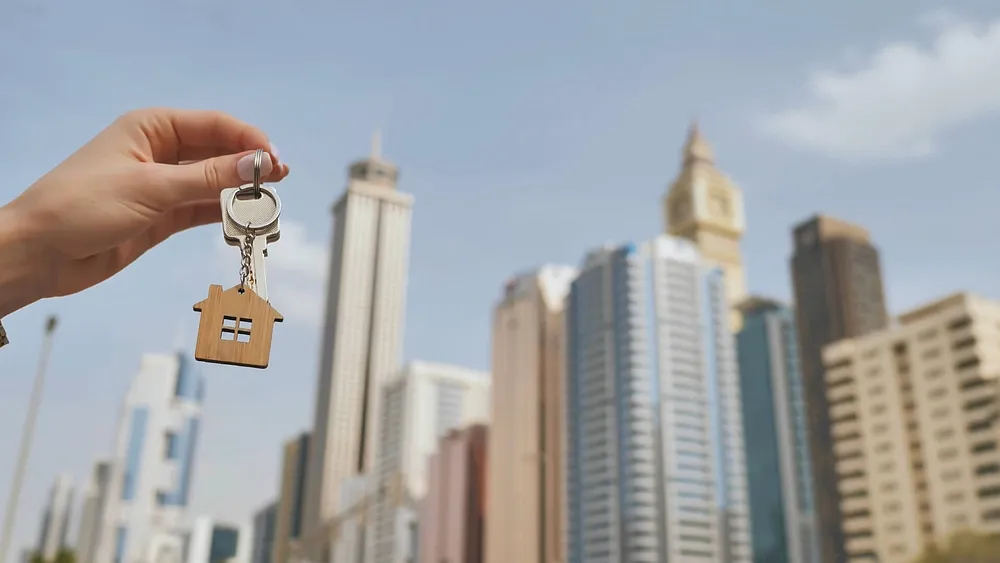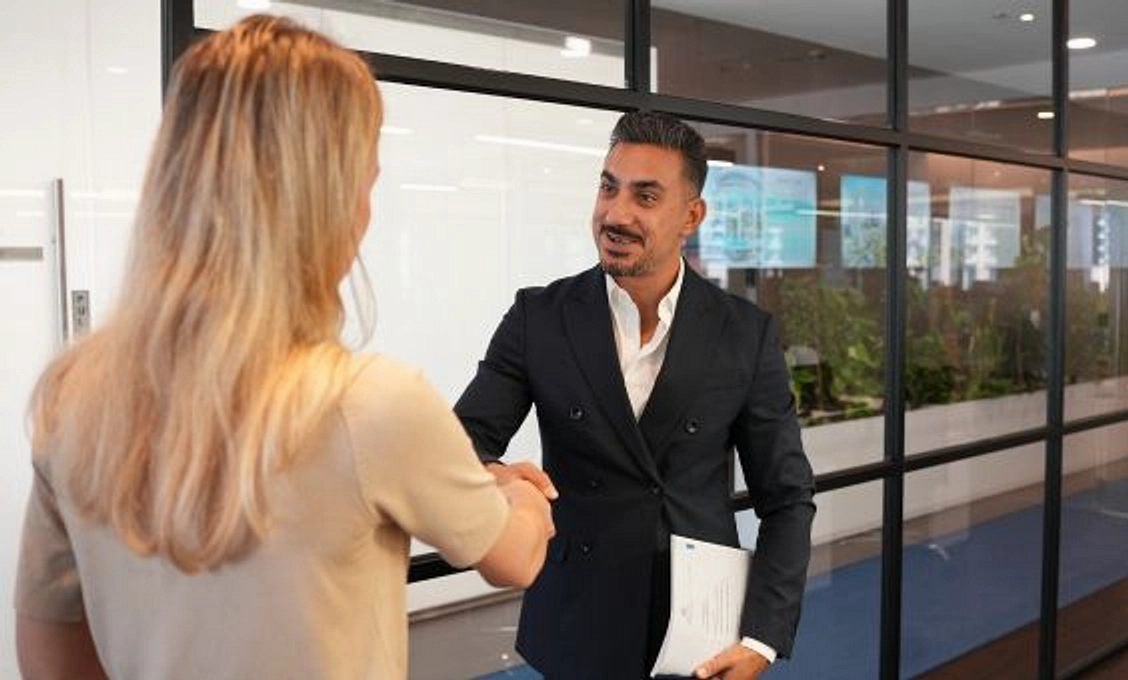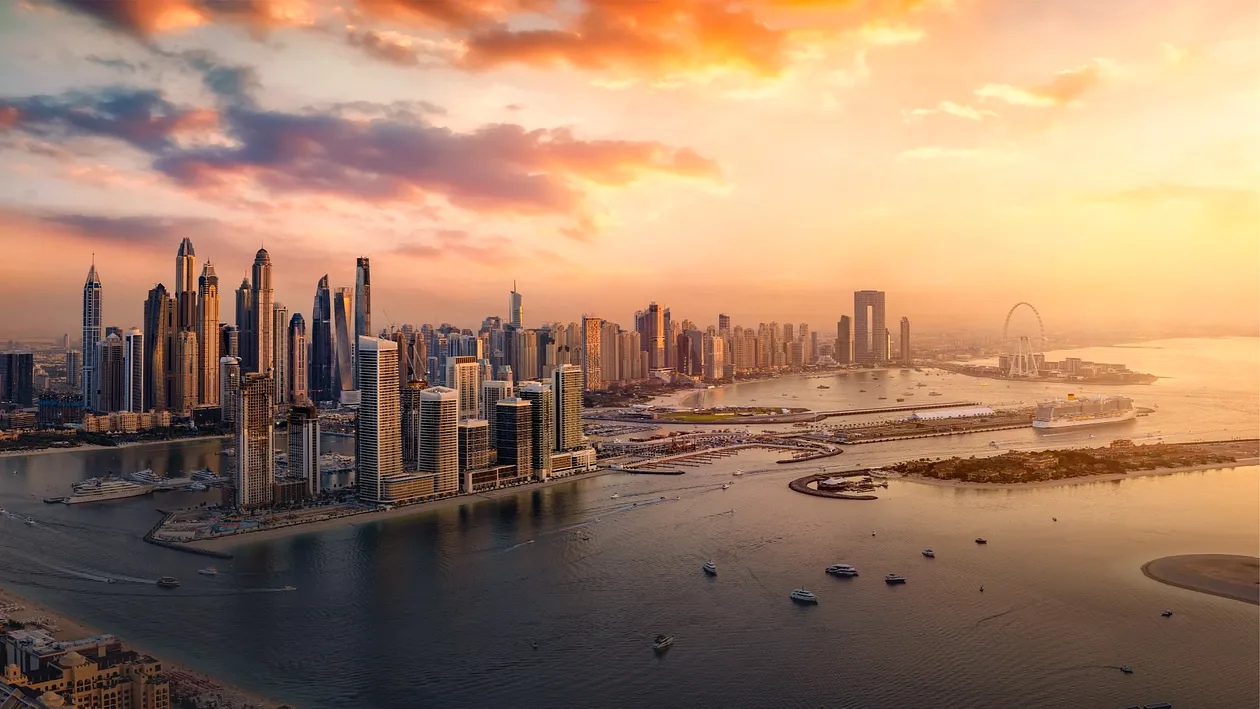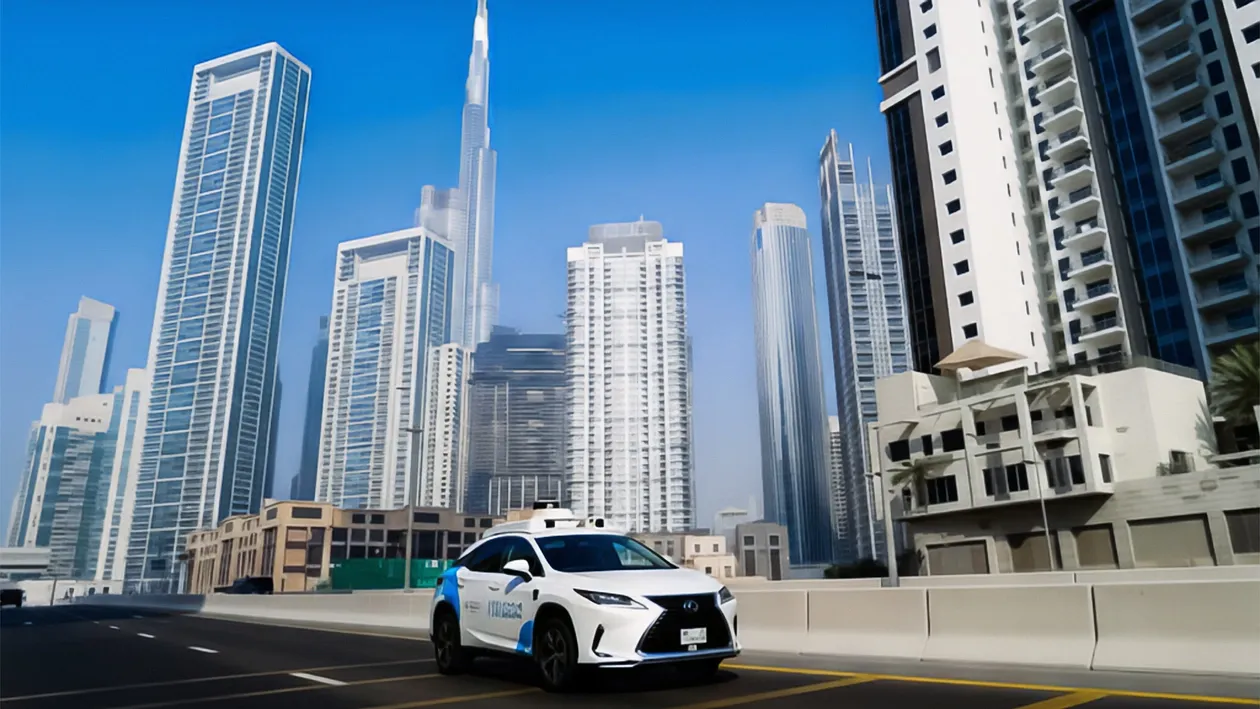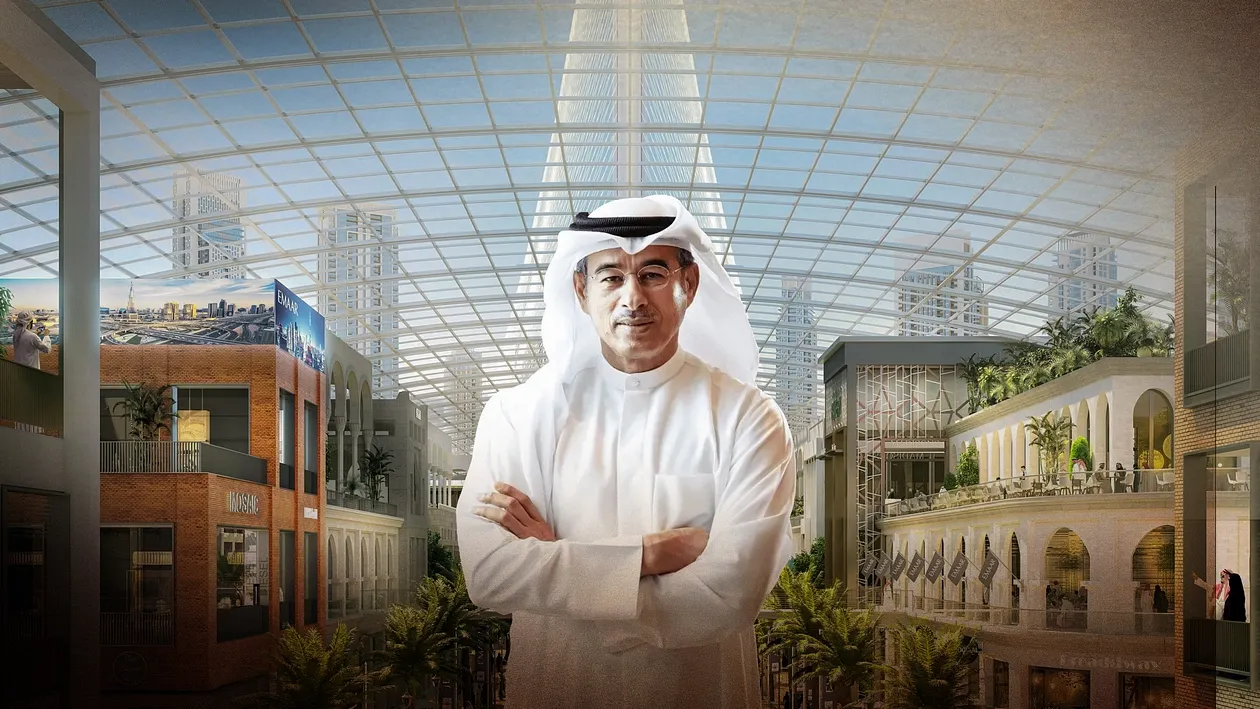Signature Collection
Explore SignaturePurchasing off-plan property in Dubai can be an attractive investment opportunity, offering flexibility and potential for capital appreciation. However, navigating this market requires a clear understanding of the process, the developer's credentials, and the property details. This blog explores the most important questions to ask when buying off-plan property in Dubai, ensuring that your investment is secure and aligned with your goals.
We'll also discuss the benefits of investing in off-plan properties and how you can make informed decisions to maximize returns.
Top 10 FAQs About Buying Off-Plan Properties in Dubai
This section addresses the most critical questions to ask and their significance, providing a solid foundation for any buyer exploring Dubai's off-plan real estate market.
1. What is off-plan property in Dubai?
Off-plan property in Dubai refers to real estate that is sold before construction is completed, often directly from developers. Buyers invest in these properties based on floor plans, brochures, and project renderings, with the promise of future completion.
This type of investment is popular due to attractive payment plans, lower initial prices compared to ready properties, and the potential for capital appreciation upon completion. However, purchasing off-plan requires careful consideration of the developer’s track record, project timelines, and market trends to ensure a secure and profitable investment.
2. Can I sell my off-the-plan property in Dubai?
Yes, you can sell your off-plan property in Dubai before its completion, but this depends on the developer’s policies and the terms outlined in the Sales and Purchase Agreement (SPA). Most developers require buyers to pay a certain percentage of the property price—typically 30% to 40%—before allowing a resale. This process, known as an assignment sale, transfers the ownership rights to a new buyer. While selling off-plan can be profitable due to price appreciation, market conditions and demand should be considered to ensure a successful resale.
3. Is it worth buying off-plan property in Dubai?
Buying off-plan property in Dubai can be a worthwhile investment, especially for those looking for lower entry prices, flexible payment plans, and potential capital appreciation. Investors often benefit from purchasing at early-stage prices, which may increase as the project nears completion.
Additionally, newer developments often come with modern designs and premium amenities. However, it is crucial to evaluate the developer’s reputation, project feasibility, and potential market risks before making a decision.
4. What is the commission for off-plan in Dubai?
Commission rates for off-plan properties in Dubai typically range between 1% and 5% of the property price, depending on the developer and real estate agency involved. Some developers cover the commission, making it a cost-free transaction for buyers, while others require the buyer to pay an agent’s fee. It’s essential to clarify commission terms with both the developer and agent before proceeding with a purchase.
5. Are there any additional costs besides the property price?
Yes, buying an off-plan property in Dubai comes with additional costs beyond the purchase price. These may include a 4% Dubai Land Department (DLD) registration fee, Oqood registration charges, service charges upon completion, and potential agency commissions.
Buyers should factor in mortgage processing fees (if applicable), VAT on service fees, and future maintenance costs. Understanding these expenses in advance helps ensure a well-planned investment.
6. Who is the developer, and what is their track record?
Understanding the developer's reputation is a cornerstone of successful off-plan property investment. A reputable developer with a proven history of completing projects on time and adhering to quality standards offers confidence in your purchase. Research their portfolio, seek testimonials from previous buyers, and check for reviews to ensure credibility. A strong track record often translates into a smoother experience and fewer risks.
7. What is the project's expected completion timeline?
Timelines are critical when investing in off-plan properties. Knowing the estimated completion date allows you to plan your finances and potential usage of the property. Delays can occur, so inquire about any buffer periods included in the schedule. Developers who provide realistic and transparent timelines are more likely to deliver as promised.
8. What are the payment plans and associated costs?
Off-plan properties often come with flexible payment structures. It's essential to understand the complete payment schedule, including the initial down payment, installment plan, and any post-handover payments. Additionally, inquire about hidden costs such as registration fees, maintenance charges, and service fees. A comprehensive understanding of all costs ensures there are no financial surprises.
9. Is the project registered with the Dubai Land Department (DLD) and RERA?
Legal compliance is a non-negotiable aspect of off-plan property investment. Ensure that the project is registered with the Dubai Land Department (DLD) and the Real Estate Regulatory Agency (RERA). These registrations offer a layer of protection for buyers, safeguarding your investment in case of disputes or delays. Request documentation to verify this compliance before proceeding.
10. What are the specifications and quality of materials to be used?
Details about the design, layout, and materials used in construction are essential for understanding the quality of the property. Developers should provide a clear breakdown of specifications, including flooring, fixtures, and finishes. High-quality materials enhance long-term property value and reduce future maintenance expenses.
11. What is the location and future development potential of the area?
Location is one of the most critical factors affecting property value and rental demand. Investigate the surrounding infrastructure, such as schools, hospitals, public transport, and retail outlets. Future development plans, such as nearby projects or government initiatives, can significantly impact the area's desirability and your property's appreciation potential.
12. What are the terms of the Sales and Purchase Agreement (SPA)?
The Sales and Purchase Agreement (SPA) is a legally binding document that outlines the terms of your purchase. Review it carefully to understand your rights and responsibilities, penalties for late payments, procedures in case of delays, and refund policies. If needed, consult a legal expert to ensure clarity and protection.
13. What amenities and facilities are included in the project?
Modern buyers and tenants often prioritize amenities such as gyms, pools, parks, and security systems. Clarify which facilities are included and their accessibility. Properties with high-quality amenities tend to attract better rental yields and higher resale values, making them more appealing investments.
14. What is the developer’s policy on modifications and customizations?
If you're considering customizing the property, such as changing layouts or finishes, inquire about the developer's policies. Some developers offer flexibility during the construction phase, while others may have strict restrictions. Knowing these options in advance helps tailor the property to your needs.
15. What are the Benefits of Off-Plan in Dubai?
Off-plan properties in Dubai offer a range of benefits that make them a popular choice among investors and end-users. Here are five key advantages:
Lower Purchase Prices
One of the most attractive features of off-plan properties is their affordability. Prices are generally lower than completed properties, providing buyers with an entry point into Dubai's competitive real estate market at a reduced cost.
Flexible Payment Plans
Developers often offer flexible installment plans, allowing buyers to spread payments over the construction period. This reduces the financial burden and makes it easier for investors to manage cash flow.
Potential for Capital Appreciation
Off-plan properties often appreciate as the project progresses. Early buyers benefit from lower prices and can realize significant returns upon project completion, making it a lucrative investment strategy.
Customization Opportunities
Buying off-plan allows you to choose your preferred unit, layout, and finishes. This customization ensures the property meets your personal preferences or market demands, enhancing its appeal for future resale or rental.
Modern Amenities and Advanced Designs
New developments are designed with contemporary lifestyles in mind, offering state-of-the-art amenities, energy-efficient systems, and smart home technologies. These features enhance the living experience and add value to your investment.
Final Thoughts
Investing in off-plan properties in Dubai offers a unique blend of affordability, flexibility, and potential for high returns. However, it is vital to approach this opportunity with a well-researched strategy, addressing all the questions to ask when buying off-plan property in Dubai. These questions ensure you have a clear understanding of the project, its risks, and its rewards.
To simplify the process and secure the best off-plan properties, consider partnering with experts. Provident Estate offers professional guidance, helping you navigate the complexities of the Dubai real estate market and ensuring a seamless and rewarding investment experience.
FAQs
Yes, many banks and financial institutions in Dubai offer loans for off-plan properties. However, they typically require the property to be registered with the Dubai Land Department (DLD) and the developer to meet specific criteria.
If you fail to make payments as per the agreement, the developer may impose penalties or cancel the contract, depending on the terms outlined in the Sales and Purchase Agreement (SPA). In some cases, partial refunds may be available, but this varies by developer and situation.
Yes, most off-plan properties in Dubai are freehold.
Off-plan properties usually have a flexible payment structure, including a down payment (10-20%) and installment plans spread over the construction period, with some requiring a final payment upon completion.
Many buyers look to capitalize on the appreciation of off-plan properties by selling them before completion. However, some developers impose restrictions on resale or require a percentage of the payment to be completed first. Understanding these policies is vital for planning your investment exit strategy.
By addressing these questions when buying off-plan property in Dubai, you can minimize risks, avoid common pitfalls, and gain all the advantages of investing mentioned in the blog.
Yes, off-plan investments in Dubai come with certain risks, including potential project delays, changes in market conditions, and developer-related issues. While reputable developers generally adhere to project timelines, unforeseen circumstances may cause delays or modifications.
Yes, it is possible to obtain a mortgage for an off-plan property in Dubai, but financing options are more limited compared to ready properties. Most banks offer mortgages only after a developer has completed at least 50% of the project.
Dubai offers numerous attractive locations for off-plan investment, with popular areas including Downtown Dubai, Dubai Marina, Palm Jumeirah, Jumeirah Village Circle (JVC), Business Bay, Dubai Creek Harbour, and Mohammed Bin Rashid City (MBR City).
Yes, foreigners can purchase off-plan properties in Dubai in designated freehold areas. The city has a well-established legal framework that allows non-residents to own property with full ownership rights in areas such as Palm Jumeirah, Downtown Dubai, Dubai Marina, and Arabian Ranches.
The process of buying an off-plan property in Dubai involves several key steps:
- Select a project – Choose a suitable off-plan development and verify the developer’s reputation.
- Pay the booking fee – Typically 5% to 10% of the property price to reserve the unit.
- Sign the Sales and Purchase Agreement (SPA) – A legal contract outlining payment terms and project details.
- Follow the payment plan – Make installment payments linked to construction milestones.
- Register with Dubai Land Department (DLD) – Pay the 4% registration fee and ensure compliance with regulations.
- Funds managed through escrow accounts – Protects buyer payments until project completion.
- Final payment and handover – Upon project completion, settle the remaining balance and take possession of the property.
For more information, get in touch with us at Provident
